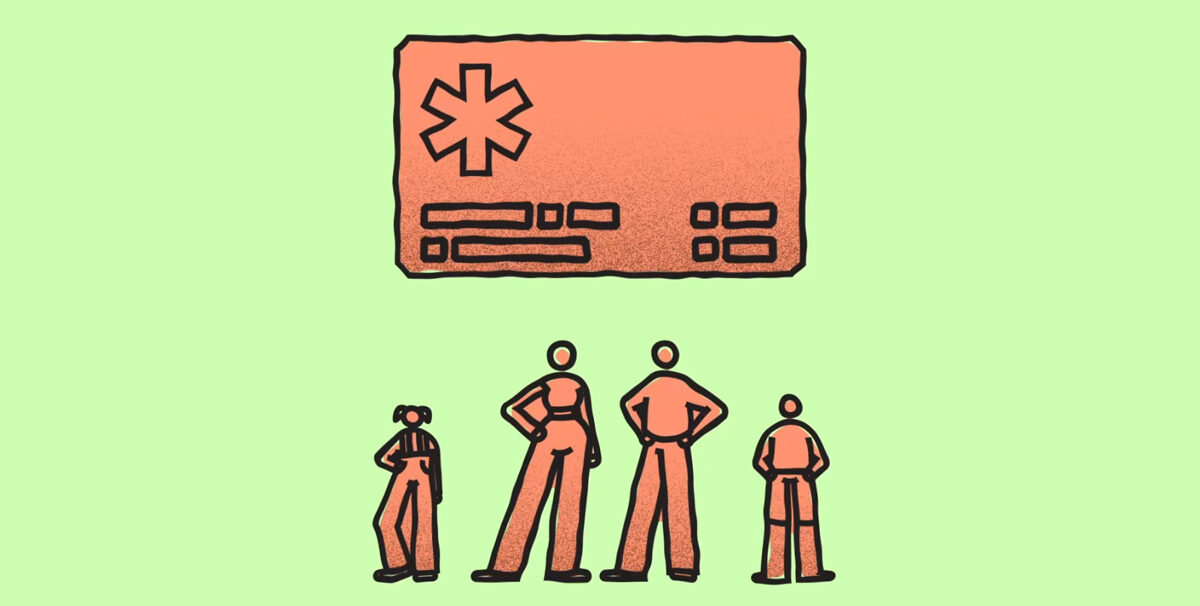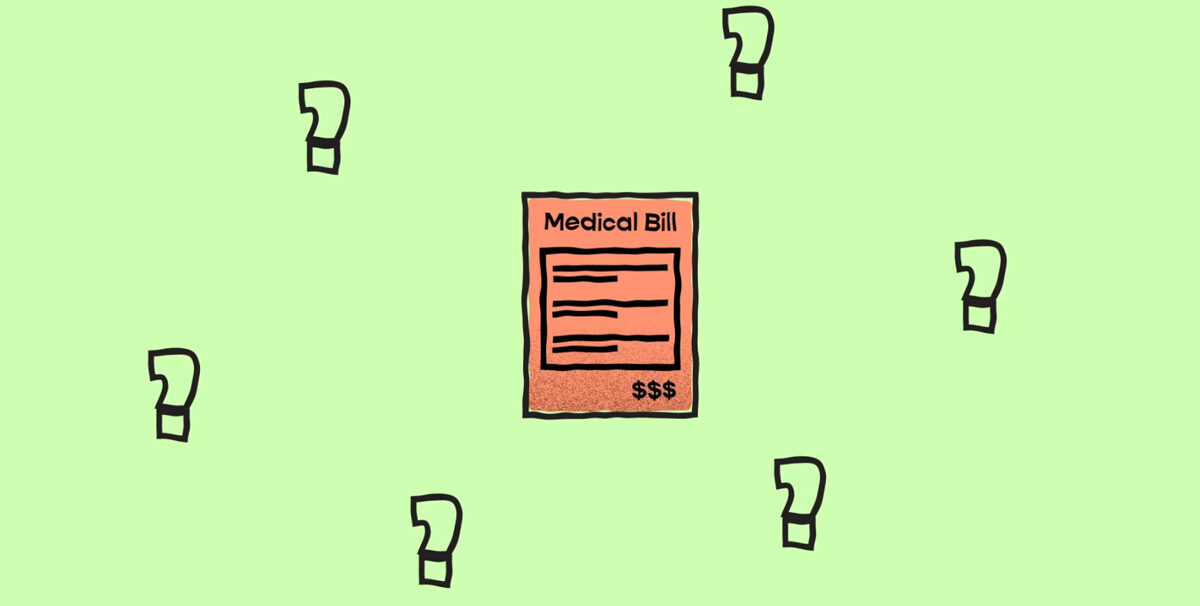According to a Gallup poll, 55% of Americans experience stress on a daily basis—making the United States one of the most stressed-out nations in the world. Unfortunately, chronic and long-term stress can greatly increase your risk of developing a serious health condition. Prolonged stress that is not addressed can become a serious health concern and can lead to burnout. Examples of chronic and long-term stress include financial troubles and heavy workloads.
Stress that is left unchecked can contribute to health problems like heart disease, diabetes, high blood pressure, obesity, and other mental health conditions.
Stress affects your mental health, but it can show itself in other ways too. Back pain, poor focus and headaches can all be symptoms of stress. Additional stress signals include trouble sleeping, upset stomach, change in appetite, social withdrawal, and chest pain.
Take action each week:
Managing Stress & Anxiety
Tuning into the news may be highly stressful or upsetting for many Americans. If you’ve been experiencing stress or anxiety due to current events, you are not alone. Stress is part of everyday life, but it can be particularly heightened due to the news, current events or unfortunate incidents that could directly or indirectly impact your well-being.
This article outlines symptoms of stress and anxiety and offers ways to cope with your feelings during troubling times.
What Is Stress?
Stress is any demand placed on your brain or physical body. Stress is typically caused by an external trigger. Any event or scenario that makes you feel frustrated or nervous can trigger it.
According to the American Psychological Association (APA), people under stress experience mental and physical symptoms, such as irritability, anger, fatigue, muscle pain, digestive troubles and difficulty sleeping.
What Is Anxiety?
On the other hand, anxiety is defined by the APA as persistent, excessive worries that don’t go away even in the absence of a stressor. It also leads to the same symptoms as stress.
Management Tips
Most people experience some feelings of stress or anxiety at some point. While stress and anxiety are different feelings, they’re closely connected. After all, they can sometimes be helpful motivators to accomplish tasks or do things you’d rather not, but should or need to. While experiencing stress and anxiety are normal during tough times, you can put yourself at risk for long-term mental and physical health effects if you don’t take steps to cope with these feelings.
Since stress and anxiety are emotional responses, they respond well to similar coping mechanisms. Try the following general tips to improve how you manage your stress and anxiety:
- Avoid doomscrolling. Doomscrolling is a relatively new unique behavior. It’s the concept of binging on negative news. You may want to follow news coverage about current events to stay in the loop of what’s happening, but spending too much time doing this can negatively impact your mental health. The same danger goes for excessive scrolling on social media. To combat this unhealthy habit, try to spend less time on social media and focus on facts rather than speculation.
- Be physically active. Try to give your mind a rest, shifting the focus to your body instead. Physical activity creates mood-boosting chemical changes in the brain. Engage in activities such as swimming, cycling, walking and running.
- Be mindful. When thoughts feel spiraling, mindfulness activities may stop your mind from racing. Yoga, meditation and other mindful practices can help you feel present in the moment.
Try breathing exercises. Breathing is closely linked to the nervous system. Deep, controlled breathing with extended exhalation can cause a fall in heart rate and blood pressure. When deep breathing exercises are practiced regularly, you may also experience calm and relaxing feelings. - Take time to unwind. It’s essential to still engage in activities you enjoy. Creative outlets, such as hobbies, crafts, writing or home improvement, can be good distractions.
- Maintain sleep habits. Although it may be hard to sleep when anxious, try to maintain your usual sleeping pattern. Being well-rested is vital for emotional balance.
- Eat healthy, balanced meals. Healthy eating is important for your overall physical and mental health, improving your ability to navigate stress during troubling times. Eat plenty of fruits and vegetables, lean protein and whole grains. Eating well also means limiting saturated fats, cholesterol, salt and added sugars.
- Connect with others. Good relationships foster a sense of belonging and provide an outlet to share experiences. Sharing worries with others can improve your situation and feelings. Connect with friends and family to bolster your mental well-being. Make social plans, such as a family meal or lunch with a close friend or colleague.
- Be transparent. If your stress or anxiety stems from work-related situations, reach out to your manager or supervisor. There may be ways that your manager can help to lessen the burden.
Many Americans experience stress or anxiety. If left unchecked, though, these feelings can negatively affect your mental well-being. Take steps today to keep your stress and anxiety under control.
Summary
When anxious and helpless feelings occur, it’s hard to know what to do, but it’s essential to focus on what you can control. You are in control of your thoughts and can take steps to protect your mental and physical health. It’s natural to feel anxious or stressed, but don’t suffer alone. Your employer may offer mental health or wellness resources.
Additionally, if you’re concerned about your mental health, talk to your doctor, a licensed mental health professional or contact the Substance Abuse and Mental Health Services Administration’s National Helpline by calling 800-662-HELP (4357).
Eat a Low-Stress Diet
- Even though your job or family life may be the main source of stress in your life, your diet can also contribute to emotional turmoil.
According to the Wellness Council of America (WELCOA), as you become increasingly stressed, the following occurs:
Vital nutrients deplete in the body and are generally not replaced because of stress-prone eating habits. - Individuals gravitate toward foods that promote a stress response to fulfill a need. These foods include refined sugar, processed flour, salt and caffeine. These foods can compromise your immune system.
Many stressed individuals eat poorly because they do not have time to find healthy ways to replenish their bodies, or they crave junk food during stressful experiences.
To avoid stress food traps, consider these healthy eating recommendations:
- Eat a diet rich in foods of many colors, such as vegetables.
- Select foods that are high in antioxidants, like broccoli, carrots, whole grains, spinach and any kind of berries.
- Opt for organic foods whenever possible.
- Drink filtered water to keep you hydrated.
- Reduce or eliminate your caffeine intake.
- Cook with fresh herbs and spices.
- Consume free-range meats to avoid ingesting synthetic hormones and fertilizers.
- Avoid eating genetically modified foods, especially meat products.
- Consume at least 30 to 40 grams of fiber each day. Good sources of fiber include apples, peas, whole wheat bread, and bran cereal.
- Add omega-3 fatty acids to your diet, either with a supplement or in foods such as salmon, walnuts, shrimp and soybeans.
Managing Stress as a Working Parent
Many parents hold full- or part-time jobs. However, being a parent on its own is one of the hardest jobs anyone could take on. Couple that with the stress of a career, and it can be too much for anyone.
It’s not uncommon to experience guilt and frustration trying to balance both work and family obligations. You may end up focusing on the things you can’t do or what you’re missing out on. The key to managing both worlds is focusing on the things that you can accomplish and making the most of the time you have at work, with your family and on your own.
Get and Stay Organized
- Keep your home and office organized. That way, you won’t have to waste time looking for important files or sorting through junk mail.
- Keep everything in its assigned place so you know where to find exactly what you need when you need it.
Create a Plan
- Use a day planner where you can keep track of both work and home obligations in the same place so you don’t overcommit yourself.
- Make a list of what you want to accomplish each month and then break those tasks down by week or even by day. If you keep up with the schedule, you will be less stressed.
- Leave a little buffer time in your schedule in case your child care provider cancels, your children get sick or you have to work late.
Work with Your Family
- If you bring work home, make sure your home office is kid-proof by keeping important papers out of reach and placing child-safe latches on your desk drawers.
- Set up an area in your home office for your children to do “work” with you, such as coloring or doing puzzles.
- Communicate with your partner about what you need to support you, and be supportive back. Remind your partner how grateful you are for them.
Break Out of the 9-to-5
If you are able to set your own schedule, prioritize the tasks that you must accomplish during peak working hours and complete other tasks in the early morning or later in the evening when your children are sleeping.
Remain One Step Ahead
Take a few minutes out of your evening to set out school clothes, make your children’s lunches and set up the coffee pot. Your mornings will be less chaotic.
Get up before your children to exercise, take a shower and get some work done.
Make Time for You
Set aside some time each day that is devoted to you. Use this time to relax or do something you’ve been meaning to do, even if it is just for a few minutes.
Stress & Your Skin
According to the American Academy of Dermatology (AAD), our internal feelings about ourselves can affect how we look on the outside. The key to healthy skin lies far beyond the type of soap we use. Feelings of stress can affect how the skin ages by influencing certain processes in the body that lead to oxidation and inflammation.
Chemical processes in the body produce molecules called free radicals. These enemies of the skin can damage healthy cells in a process called oxidation. Factors such as sun exposure, smoking, air pollution, poor diet and excess stress can speed up the production of free radicals.
The body also produces antioxidants that remove free radicals from the body before they can do any damage. By taking care of yourself and reducing your stress, you can increase the production of these molecules to save the look of your skin.
Skin and Stress Connection
Stress can have the following effects on the skin:
- Adrenaline produced from anxiety redirects blood away from the skin to the muscles so that it becomes pale and washed out.
- Anger, excitement, irritability and frustration releases chemicals that stimulate the sebaceous glands, which produce oil. This blocks pores and can cause acne to form.
- Stress makes muscles tenser and prevents blood from bringing oxygen and nutrients to the skin. Tension can also slow the removal of waste from underlying tissue.
- Excess strain slows down the cell turnover rate so new cells take longer to reach the skin. Consequently, a lot of their moisture is lost, making the skin look dull.
- Constant stress increases cortisone secretion, which suppresses immunity. As a result, the skin is not as resilient, and can become more irritated by outside chemicals and pollutants.
- Excess stress can make psoriasis and rosacea conditions worse and acne lesions more inflamed. It can also worsen fever blisters and dermatitis.
Stress-free Skin Solutions
- Try deep breathing techniques to calm yourself when feeling extremely stressed. Also, consider taking a yoga, Pilates or meditation course to relax your mind and body.
- Seek out professional assistance through a psychologist or psychiatrist to identify what triggers in your life are causing anxiety and stress.
- Visit a dermatologist to treat your specific skin problems. Clearer skin may start diminishing your stress.





